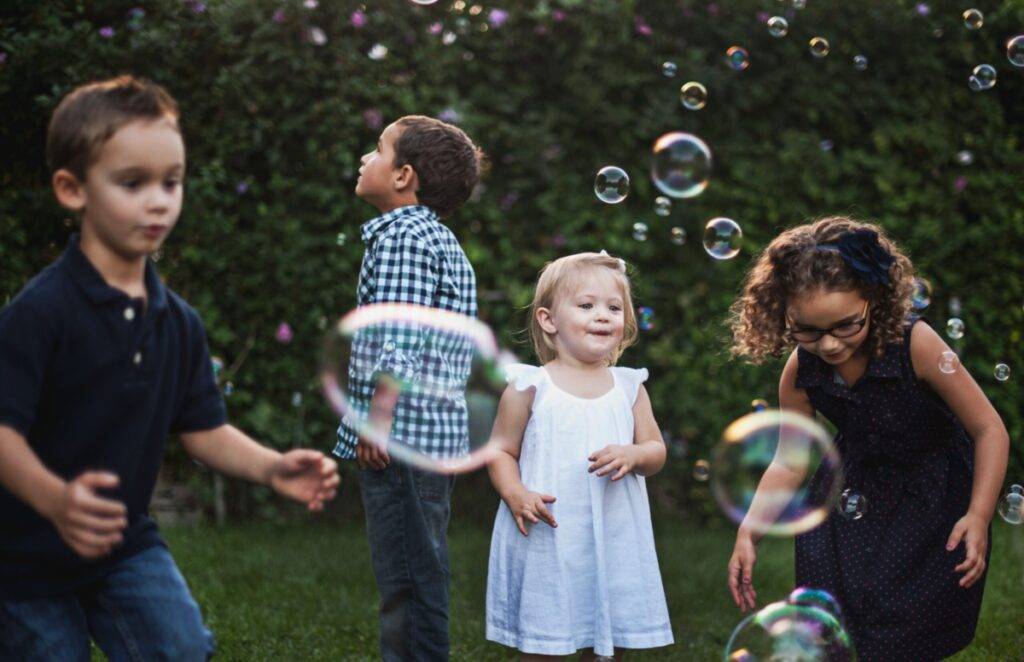A child’s social and emotional growth during the early years of life is crucial in determining how they will progress in the future. This is acknowledged by the Early Years Foundation Stage (EYFS) framework, which emphasises the growth of personal, social, and emotional abilities. The top seven advantages of emphasising personal, social, and emotional growth in the EYFS will be discussed in this article.
Table of Contents
Introduction
The Early Years Foundation Stage (EYFS) framework is designed to support the development, learning, and care of children from birth to five years old. The framework identifies seven areas of learning and development, including personal, social, and emotional development. This stage of development is essential because it equips kids with the knowledge and abilities they need to build healthy relationships, comprehend and control their feelings, and establish a solid sense of self.
Personal social and emotional development are essential skills that children need to develop to succeed in life. These skills include self-confidence, communication, empathy, resilience, positive relationships, self-regulation, and problem-solving. By focusing on these skills in the early years, we can help children develop a strong foundation for their future. Personal, social and emotional development examples include children who have a strong sense of self-confidence, good communication and language skills, empathy and understanding of others, resilience and perseverance, positive relationships with peers and adults, self-regulation and emotional management, and problem-solving and critical thinking abilities. By focusing on these skills in the early years, we can help children develop a strong foundation for their future.
Understanding Personal Social and Emotional Development in the EYFS
Personal social and emotional development in the EYFS covers a wide range of skills and behaviours, including self-confidence, self-awareness, communication, empathy, and respect for others. Children who develop these skills are better equipped to form positive relationships, communicate effectively, and manage their emotions in a healthy way. Social and emotional development in early childhood is crucial as it provides the foundation for later success in life. Children who develop these skills can navigate social situations, form positive relationships, communicate effectively, and handle stress. Parents and caregivers can support this development by providing a nurturing environment, engaging in positive interactions, and modelling positive behaviours. Early childhood educators can also help by providing activities that promote social and emotional development.
Improved Self-Confidence and Self-Awareness
Focusing on personal social and emotional development in the EYFS can help children develop a strong sense of self-confidence and self-awareness. Children who are self-assured are more apt to experiment, take chances, and learn from their mistakes. They are also more capable of overcoming obstacles and failures.
Better Communication and Language Skills
Strong social and emotional development in children increases their likelihood of having better language and communication abilities later in life. They are better able to communicate their ideas and emotions, comprehend others, and have insightful discussions.
Increased Empathy and Understanding of Others
Personal social and emotional development in the EYFS also helps children develop empathy and an understanding of others. They learn to respect and appreciate the differences between people and develop a sense of compassion and kindness.
Better Mental Health and Well-being
Strong personal, social, and emotional development in kids makes them better able to control their feelings and maintain their overall well-being. Later in life, they are less prone to suffer from anxiety, depression, and other mental health issues.
Higher Academic Achievement
Strong personal, social, and emotional abilities are associated with academic achievement in children, according to research. They are more likely to enjoy school and learning because they can focus better, and learn and retain information.
Improved Relationships with Peers and Adults
Children are better able to establish healthy relationships with both adults and their classmates when the EYFS places a strong emphasis on personal social and emotional development. They gain the ability to interact with others in meaningful ways and speak clearly. They also learn to respect and empathise with others, which can make it easier for them to deal with awkward social circumstances.
Better Preparation for the Future
Children are better equipped for the challenges they will encounter in the future because the EYFS places a strong emphasis on personal, social, and emotional growth. They learn the techniques necessary to deal with pressure, control their emotions, and cultivate wholesome relationships—all of which are crucial for success in education, the workplace, and everyday life.
Conclusion
For children’s success and overall well-being in the long run, personal social and emotional growth in the EYFS is essential. Early attention to these skills can aid children in the development of a solid sense of self, improved language and communication abilities, increased empathy, improved mental health and wellbeing, higher academic achievement, improved relationships with peers and adults, and better future preparation. It is crucial that we, as educators, parents, and carers, offer personal social and emotional development as the EYFS’s top priority.
FAQs
Q.Why is personal social and emotional development important?
Children’s personal social and emotional development is crucial because it equips them with the abilities they need to successfully handle social situations, build positive relationships, communicate clearly, and regulate their emotions. For success and well-being over the long run, these abilities are crucial.
Q.Why is personal, social and emotional development important in the early years?
Personal social and emotional development is important in the early years as it provides the foundation for long-term success and well-being. It helps children to form positive relationships, communicate effectively, manage their emotions, and develop a strong sense of self. By focusing on these skills early on, children are better equipped to handle challenges and succeed in life. personal social and emotional development from birth to 7 years is crucial as well.
Q.How can parents and caregivers support personal, social, and emotional development in the EYFS?
By providing a secure and nurturing environment, engaging in positive interactions with children, encouraging children to express their feelings, and setting an example of positive behaviours and attitudes, parents and caretakers can support personal, social, and emotional development in the EYFS.
Q. What are some activities that can promote personal, social, and emotional development in the EYFS?
Cooperative play, sharing, problem-solving activities, mindfulness and relaxation techniques, and reading books about emotions are a few examples of personal, social and emotional development activities. Activities that can promote personal, social, and emotional development in the EYFS include reading books about emotions, playing cooperative games, engaging in role-playing activities, and practising mindfulness and relaxation techniques.
Q.How can personal, social, and emotional development in the EYFS benefit children in the long term?
Personal social and emotional development in the EYFS can benefit children in the long term by helping them develop the skills they need to handle stress, manage their emotions, and build positive relationships. These skills are essential for success in school, work, and life.




Pingback: 10 Effective Ways to Demonstrate Your Communication Skills -
I do agree with all the ideas you have introduced on your post. They are very convincing and will definitely work. Still, the posts are very short for newbies. May just you please prolong them a little from subsequent time? Thank you for the post.
Usually I do not read article on blogs, however, I would like to say that this write-up very compelled me to take a look at and do it! Your writing style has been amazed me. Thank you, very nice article.